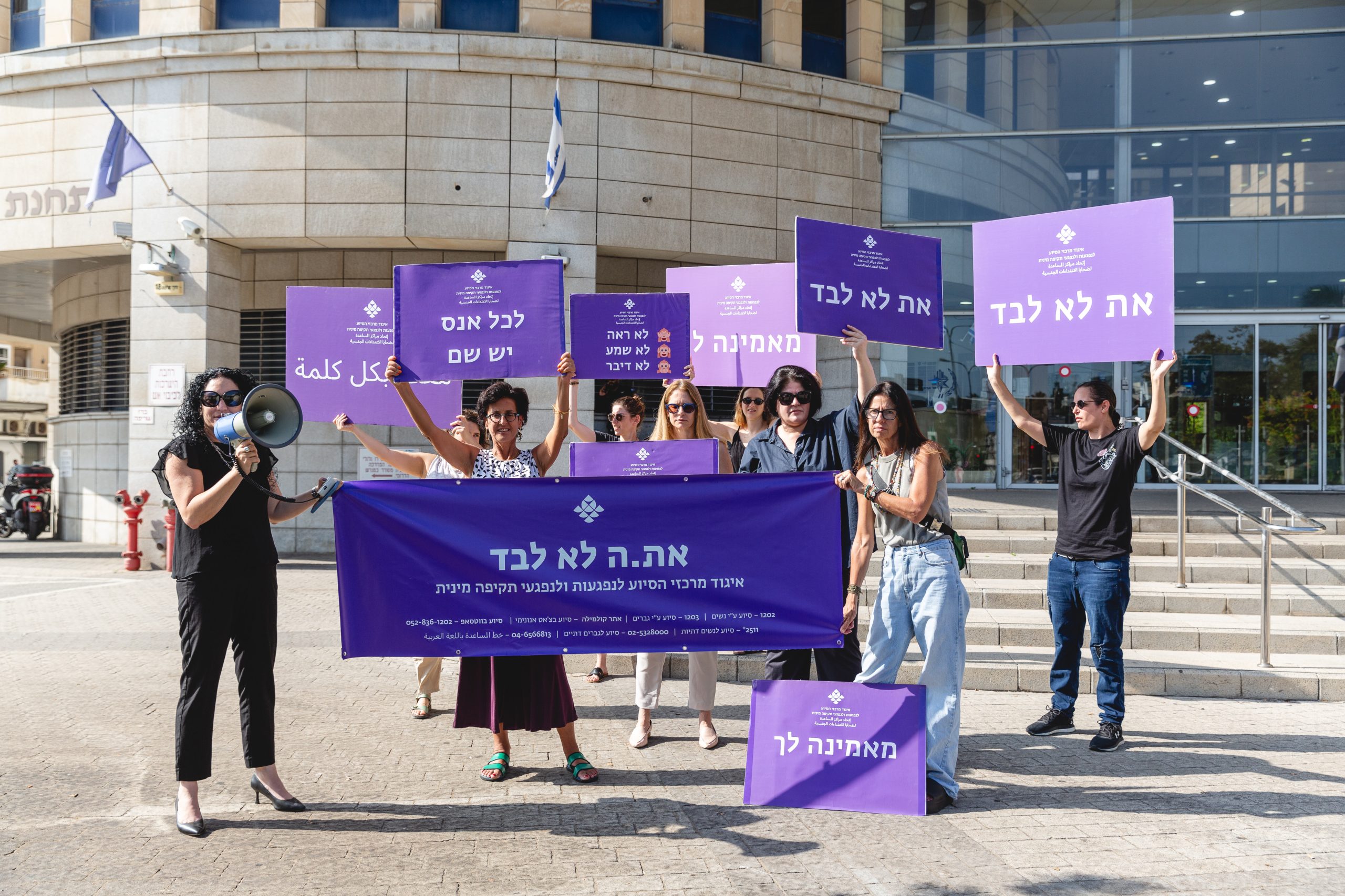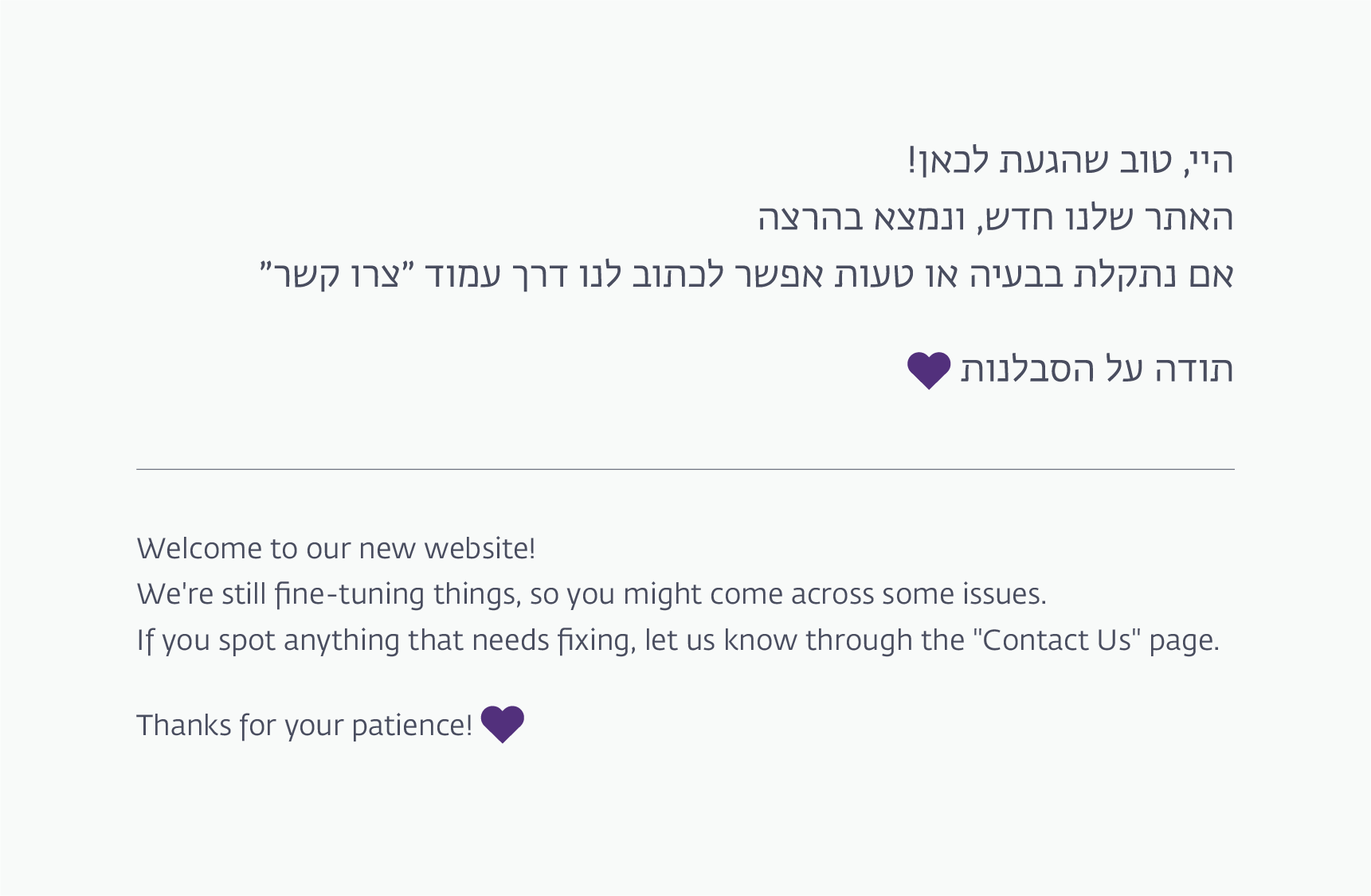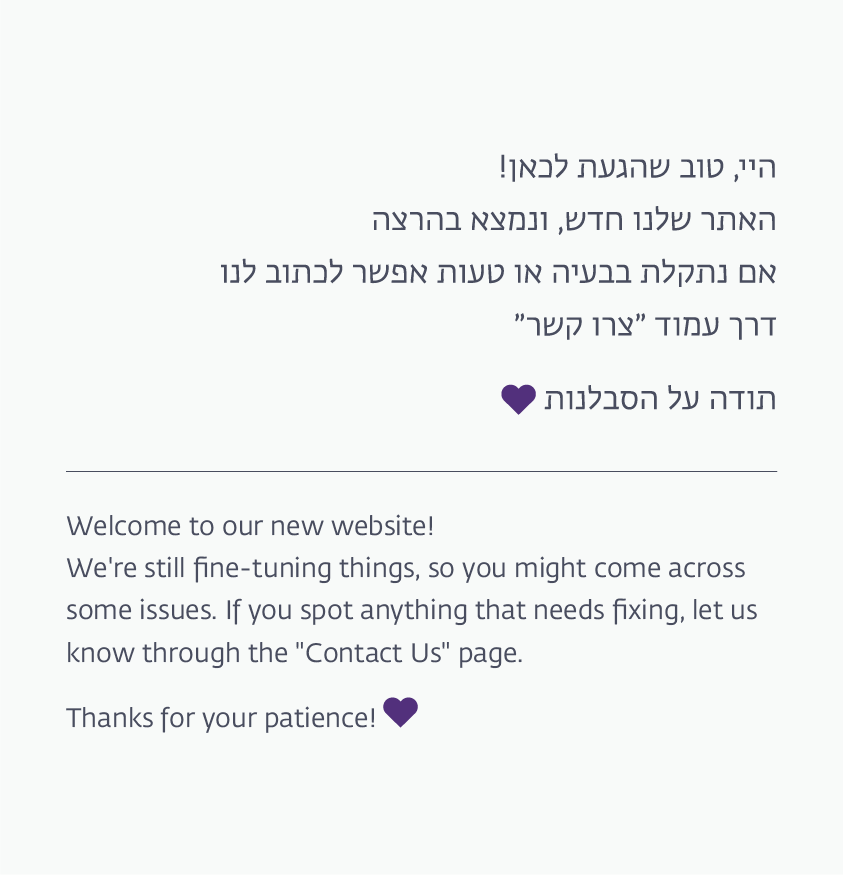Communication and Public Awareness
- The media and social networks have a broad influence on the fight against sexual violence.
- The association’s spokesperson department operates across all platforms to give a voice to survivors.
- Would you like us to support you in going public with a case of sexual assault? You can contact us.

The media and social networks are a critical arena in the fight against sexual violence. Public discourse influences the way survivors are treated, how authorities address the issue, and the societal norms surrounding it. That’s why the Association of Rape Crisis Centers in Israel operates in the field of media and public advocacy to shape a fair and respectful public conversation.
Sexual violence occurs under the cover of social mechanisms of silence and shame. Our role is to break the silence, ensure that the voices of survivors are heard, raise awareness of their rights, and condemn the phenomenon.
What does the communications department at the association do?
Media support for survivors.
Going public in the media is an important course of action for survivors of sexual violence, but the decision whether to do so or not is very complex. On one hand, it can be a means to achieve justice and recognition of the harm, promote authorities’ handling of the case, and empower other survivors. On the other hand, it involves very sensitive exposure, and the outcome is not guaranteed.
The media accompaniment project is designed to increase your control over the process. Its components vary from case to case, according to your needs and wishes. For example:
- “Opportunity” versus “Risk”: A joint conversation to map out all the opportunities and challenges in the process, which can help you make an informed decision.
- Handling interactions with media outlets: Establishing contact with a suitable journalist and negotiating with the media organization—setting your conditions for the interview, which details can be shared, and the level of identity exposure (visible face, blurring, pseudonym, etc.).
- Physical support: A physical presence during the interview, which can provide reassurance, ensure that no pressure is applied to you, and that the choice remains in your hands.
The accompaniment is provided by Ronit Eilati Maman, the association’s spokesperson, who has extensive experience both in working with the media and in supporting survivors.
To receive support, you can contact the assistance centers or reach out to Ronit by email at pr@igud1202.org.il.
Promoting Fair Media Coverage
The Fair Media Coverage Project was born out of a reality in which sexual violence was often covered in a harmful way – ranging from sensationalist and tabloid framing, to victim-blaming, and even harassment of survivors in the name of “exclusivity.”
In 2014, the association published an ethical code for media coverage of sexual assault, developed in collaboration with the Journalists’ Union and the Israel Democracy Institute. Over the years, the association has been conducting regular workshops at major media outlets to instill the principles of ethical reporting and bringing journalists together with survivors who share firsthand accounts of the impact media coverage has had on their lives. Additionally, the association’s spokesperson maintains ongoing communication with journalists who cover the field regularly and provides advice when needed.
Presence in the Media and on Social Networks
The Association of Assistance Centers maintains a constant presence in the media and on social networks to influence public opinion and societal perceptions of the phenomenon. The association regularly initiates articles and publishes opinion pieces and responses in traditional media (newspapers, television, and radio). It also works to ensure the integration of helpline guidelines into fictional or documentary content dealing with sexual assault, which may serve as a trigger for survivors who watch them.
The association’s social media accounts provide regular updates on the fight against the phenomenon and on the association’s activities, responses to current cases in the public discourse, engagement with the community’s online conversations, and referrals to the support system for anyone in need.
Public Campaigns and Activism
The association leads and supports public struggles that create change in reality. Alongside ongoing support for survivors in high-profile cases, the association initiates and coordinates various activist activities — including demonstrations, media appearances, appeals to authorities and public bodies, email campaigns, and more.
Last updated: 09.06.2025


